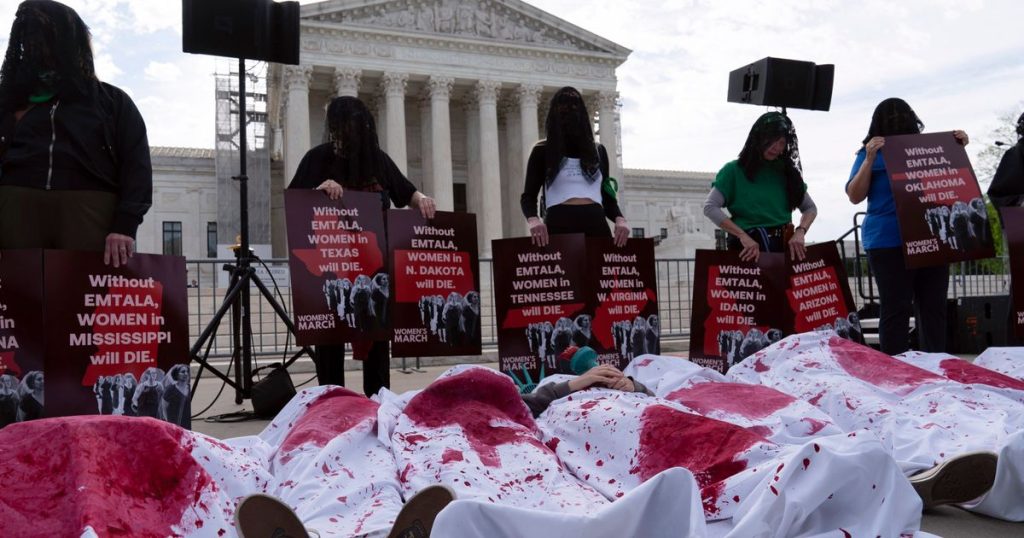The arguments presented to the Supreme Court concerning Idaho’s near-total abortion ban focused on whether states can criminalize life-saving and stabilizing abortion care in emergency medical situations, particularly in cases where the pregnant person’s life is at risk. The debate centered around the conflict between Idaho’s ban and federally mandated requirements under the Emergency Medical Treatment and Labor Act (EMTALA), which requires hospitals participating in Medicare to offer abortion care when necessary to stabilize a pregnant patient’s health during a medical emergency. With the repeal of Roe v. Wade and the Dobbs decision, questions have arisen about the impact of post-Dobbs abortion bans on reproductive health and the difficult situations they create for physicians and patients.
The Idaho ban only allows abortion when the pregnant person’s life is in imminent danger, leading to potential delays that could result in long-term health complications or even death for patients. During the arguments, conservative justices on the Supreme Court focused on issues such as federal spending power and mental health exceptions for abortion care in emergency situations, raising questions about whether EMTALA preempts state law and what constitutes stabilizing care under federal regulations. The role of consent in emergency situations, especially when a pregnant person may not be able to provide it, also came under scrutiny.
The potential implications of a ruling in favor of Idaho’s ban extend beyond the state, as other states with similar restrictions could see increased barriers to emergency abortion care. The impact of narrow abortion bans on pregnant individuals has already been evident in cases across the country where women have been denied care or turned away from hospitals due to restrictive state laws. Idaho’s healthcare system has already suffered significant losses in OB-GYNs and maternal-fetal health specialists, leading to concerns about the availability of essential maternal healthcare services in the state.
Advocates, including the Planned Parenthood Federation of America, have warned of catastrophic consequences if the Supreme Court fails to uphold federal protections for emergency abortion care, as has been the law for nearly four decades. The Department of Justice filed a lawsuit against Idaho over the abortion ban, citing its conflict with federal law and the potential harm it could cause to individuals with the capacity for pregnancy. The decision in the case is expected later in the year, with significant implications for access to emergency abortion care nationwide.


